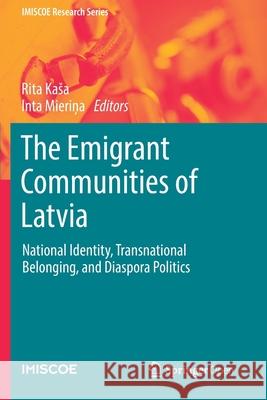The Emigrant Communities of Latvia: National Identity, Transnational Belonging, and Diaspora Politics » książka
topmenu
The Emigrant Communities of Latvia: National Identity, Transnational Belonging, and Diaspora Politics
ISBN-13: 9783030120948 / Angielski / Miękka / 2020 / 298 str.
The Emigrant Communities of Latvia: National Identity, Transnational Belonging, and Diaspora Politics
ISBN-13: 9783030120948 / Angielski / Miękka / 2020 / 298 str.
cena 201,72
(netto: 192,11 VAT: 5%)
Najniższa cena z 30 dni: 192,74
(netto: 192,11 VAT: 5%)
Najniższa cena z 30 dni: 192,74
Termin realizacji zamówienia:
ok. 22 dni roboczych.
ok. 22 dni roboczych.
Darmowa dostawa!
Kategorie:
Kategorie BISAC:
Wydawca:
Springer
Seria wydawnicza:
Język:
Angielski
ISBN-13:
9783030120948
Rok wydania:
2020
Wydanie:
2019
Numer serii:
000331418
Ilość stron:
298
Waga:
0.44 kg
Wymiary:
23.39 x 15.6 x 1.65
Oprawa:
Miękka
Wolumenów:
01
Dodatkowe informacje:
Wydanie ilustrowane











